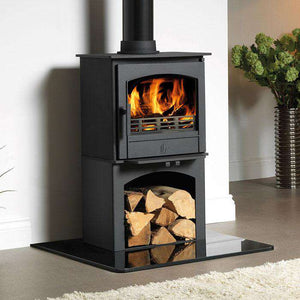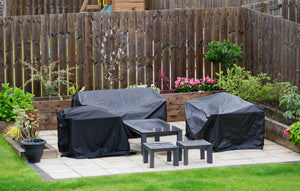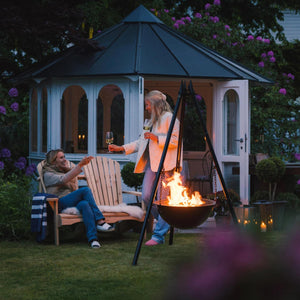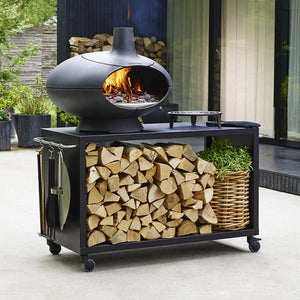Can Wood Burning Stoves be Eco-Friendly?

While they may have been used traditionally in countryside homes, especially those with low access to heating networks or those with their own waste wood to burn, wood burning stoves are becoming increasingly popular in many British households.
Close to 200,000 wood burning stoves are installed every year in the UK, with this trend only set to increase.
Given the recent extreme weather conditions, there is also a rising trend of being self-conscious about the impact individuals have on the environment which has caused big brands to ditch the plastic and make promises to consumers that they will reduce the amount of waste they produce.
But what about wood burning stoves? Are they actually as eco-friendly as they claim?
The simple answer is yes – wood burning stoves can be as environmentally friendly as traditional methods of heating the home, as long as they are looked after and used correctly! To ensure your wood burning stove is as environmentally friendly as can be, always remember the following points:
Burning Wood is better than Burning Fossil Fuels
Time for some chemistry – wood is a carbon neutral fuel, which means that it does not produce more carbon dioxide or CO2 than is already present in the carbon cycle. Any carbon dioxide that is produced by burning wood is simply reabsorbed by plants and trees and turned back into oxygen for us to breathe.
Wood is also a renewable source of energy that requires nothing but solar power and rain to grow.
In contrast, Fossil Fuels like electricity and gas produce far more CO2 when burned, and also cost a lot of fossil fuels to produce in the first place. A lot of these have to be imported, only further adding to their carbon footprint.
Encourage regrowth using A Local Wood Supplier
There are some obvious benefits of purchasing wood from a local wood supplier that help to protect the environment. The wood will not have been transported from a distance, therefore reducing the amount of fuel burned and distributed into the atmosphere.
It’s also easier to pick a wood supplier that is conscious of their impact on the environment and replants a new tree for every tree that they cut down. If you are able to talk to the supplier and find out more about their growing process, you can make a more informed decision about your fuel source.
Burn the right kind of wood
Wood burning stoves will only produce excessive smoke if you use incorrect fuel to power them. For example, using logs that have a moisture content lower than 20% will provide a much cleaner burn, producing less smoke and also ensuring that you don’t cause a build-up of soot and residue in your chimney that could cause a chimney fire.
The type of wood that you burn can also have a big impact. Hardwood logs produce around twice the output of softwood logs and therefore mean less is required to burn. We would recommend opting for Ash, Beech, Hawthorn, Thorn, Yew, and Rowan for the best performing fuel for your fire.
It’s also important to make sure that, should you choose to burn wood waste, that any wood is not treated or painted as this will release incredibly harmful gases into the atmosphere, and will be nowhere near as enjoyable an experience.
For more information on how to pick the best firewood for your stove, and for top tips on how to season your own fuel, check out our advice section for more in-depth insights.
Buying a DEFRA approved stove
In the last decade, there has been a big push towards the development of eco-stoves and more environmentally friendly heating appliances. From 2022, new eco-design regulations come into force which will help to regulate the number of poor quality stoves and fuels being used across the UK. This is something that the stove industry has worked hard to help develop, and is a collaborative effort between the major stove manufacturers and government departments.
DEFRA approved stoves meet the Government standards on air pollution by carefully preventing the fire from being starved of air as much as possible. Many of these appliances have multiple air in-takes which feed enough oxygen to the fire to ensure that it burns at maximum efficiency, producing the most heat for your fuel and also drastically reducing the amount of smoke produced.
In the future, it is expected that older forms of wood burning stove will be phased out, so if you’re looking to purchase a new wood burning stove then a DEFRA model is definitely a wise choice – not only will this save you from having to swap your stove in a few years, but it will also mean you can enjoy your stove while still taking care of the environment.
Take a look at our extensive collection of wood burning DEFRA approved stoves here. We stock a range of DEFRA approved wood burning and multi-fuel stoves to suit all budgets and tastes.
- Ian Bright









